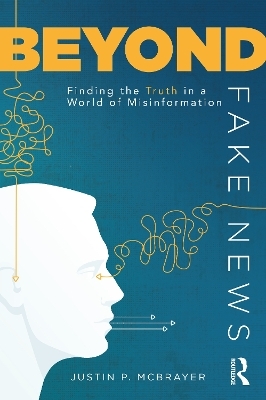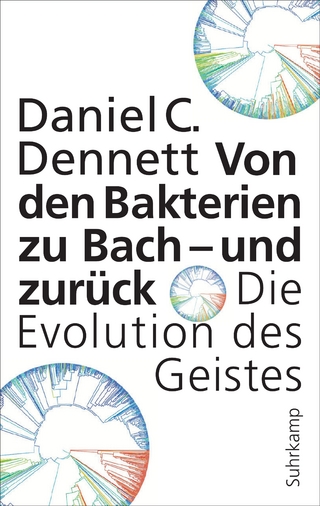
Beyond Fake News
Finding the Truth in a World of Misinformation
Seiten
2020
Routledge (Verlag)
978-0-367-48308-1 (ISBN)
Routledge (Verlag)
978-0-367-48308-1 (ISBN)
Beyond Fake News is a technological and market-based explanation for how our informational environment became so polluted. It shows how purveyors of news often have incentives to mislead us, and how consumers of information often have incentives to be misled.
The world is swimming in misinformation. Conflicting messages bombard us every day with news on everything from politics and world events to investments and alternative health. The daily paper, nightly news, websites, and social media each compete for our attention and each often insist on a different version of the facts. Inevitably, we have questions:
Who is telling the truth?
How would we know?
How did we get here?
What can we do?
Beyond Fake News answers these and other queries. It offers a technological and market-based explanation for how our informational environment became so polluted. It shows how purveyors of news often have incentives to mislead us, and how consumers of information often have incentives to be misled. And it chronicles how, as technology improves and the regulatory burdens drop, our information-scape becomes ever more littered with misinformation. Beyond Fake News argues that even when we really want the truth, our minds are built in such a way so as to be incapable of grasping many facts, and blind spots mar our view of the world. But we can do better, both as individuals and as a society. As individuals, we can improve the accuracy of our understanding of the world by knowing who to trust and recognizing our limitations. And as a society, we can take important steps to reduce the quantity and effects of misinformation.
The world is swimming in misinformation. Conflicting messages bombard us every day with news on everything from politics and world events to investments and alternative health. The daily paper, nightly news, websites, and social media each compete for our attention and each often insist on a different version of the facts. Inevitably, we have questions:
Who is telling the truth?
How would we know?
How did we get here?
What can we do?
Beyond Fake News answers these and other queries. It offers a technological and market-based explanation for how our informational environment became so polluted. It shows how purveyors of news often have incentives to mislead us, and how consumers of information often have incentives to be misled. And it chronicles how, as technology improves and the regulatory burdens drop, our information-scape becomes ever more littered with misinformation. Beyond Fake News argues that even when we really want the truth, our minds are built in such a way so as to be incapable of grasping many facts, and blind spots mar our view of the world. But we can do better, both as individuals and as a society. As individuals, we can improve the accuracy of our understanding of the world by knowing who to trust and recognizing our limitations. And as a society, we can take important steps to reduce the quantity and effects of misinformation.
Justin P. McBrayer is Professor of Philosophy at Fort Lewis College, the liberal arts college for the State of Colorado. He is Executive Director for the Society of Christian Philosophers and Co-Editor of A Companion to the Problem of Evil (2013), Introducing Ethics (2013), and Skeptical Theism: New Essays (2014).
Part 1: The Misinformation Market 1. Informational Litter 2. It’s the Economy, Stupid: The Supply Side of the Misinformation Market 3. Ignorance is Bliss: The Demand Side of the Misinformation Market Part 2: Why We Fall for Misinformation 4. Big and Little Questions 5. Intellectual Blind Spots Part 3: How We Can Do Better 6. Building a Bridge 7. Trusting Others 8. Finding the Truth 9. Cleaning Up
| Erscheinungsdatum | 24.09.2020 |
|---|---|
| Zusatzinfo | 12 Line drawings, black and white; 12 Illustrations, black and white |
| Verlagsort | London |
| Sprache | englisch |
| Maße | 152 x 229 mm |
| Gewicht | 331 g |
| Themenwelt | Geisteswissenschaften ► Philosophie ► Erkenntnistheorie / Wissenschaftstheorie |
| Geisteswissenschaften ► Philosophie ► Ethik | |
| Sozialwissenschaften ► Kommunikation / Medien ► Kommunikationswissenschaft | |
| ISBN-10 | 0-367-48308-4 / 0367483084 |
| ISBN-13 | 978-0-367-48308-1 / 9780367483081 |
| Zustand | Neuware |
| Informationen gemäß Produktsicherheitsverordnung (GPSR) | |
| Haben Sie eine Frage zum Produkt? |
Mehr entdecken
aus dem Bereich
aus dem Bereich
die Grundlegung der modernen Philosophie
Buch | Softcover (2023)
C.H.Beck (Verlag)
18,00 €
Buch | Softcover (2023)
Reclam, Philipp (Verlag)
7,00 €
die Evolution des Geistes
Buch | Softcover (2025)
Suhrkamp (Verlag)
30,00 €

![Was heißt Denken?. Vorlesung Wintersemester 1951/52. [Was bedeutet das alles?] - Martin Heidegger](/media/113619842)
